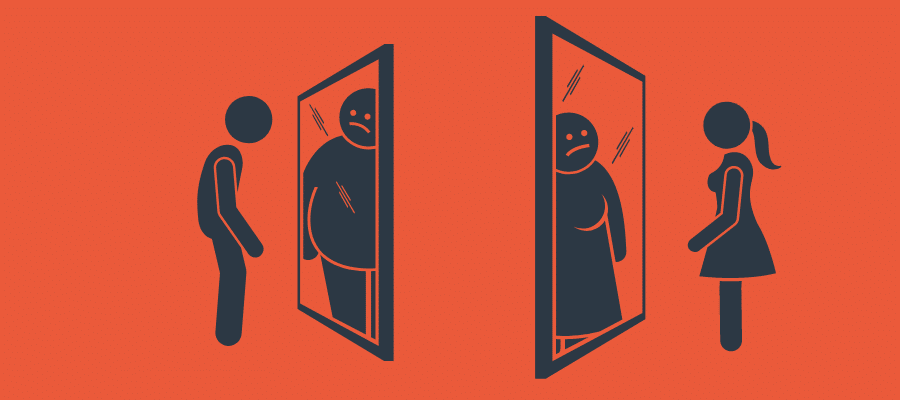In a world where quick fixes and instant results are highly sought after, diet pills have emerged as a popular solution for those looking to lose weight rapidly. However, the allure of these pills often overshadows the potential risks and side effects associated with their use. This article delves into the various aspects of diet pills, from their types and claimed mechanisms to the hidden dangers and misleading marketing tactics. By exploring these facets, the post aims to provide a comprehensive understanding of why caution should be exercised when considering diet pills as a weight loss solution.
Understanding Diet Pills

Diet pills, often seen as a fast track to weight loss, come in various forms, including prescription medications, over-the-counter supplements, and herbal concoctions. Their primary claim is to facilitate weight loss by suppressing appetite, increasing metabolism, or blocking the absorption of fat. However, the mechanisms of how these pills function are frequently oversimplified in marketing materials, leading to misconceptions about their effectiveness and safety. It’s crucial to understand these distinctions and the science, or lack thereof, behind each type to fully grasp their potential impact on health.
Despite their widespread availability, many diet pills lack substantial scientific evidence supporting their efficacy. Prescription diet pills undergo more rigorous testing and regulation, but over-the-counter options and supplements often escape these stringent requirements. This disparity in regulation raises questions about the true effectiveness and potential risks of various diet pills, highlighting the need for consumers to approach them with a healthy dose of skepticism and informed judgment.
The Hidden Dangers of Diet Pills

Diet pills can carry a range of side effects, some of which are severe and potentially life-threatening. These can include heart palpitations, liver damage, and an increased risk of heart attack and stroke, particularly in pills that contain stimulants. There are numerous documented cases where the use of diet pills has resulted in serious health complications and even fatalities, underscoring the need for caution.
The diet pill industry, especially in the realm of supplements, often operates with minimal regulatory oversight. This lack of regulation can lead to the availability of products containing harmful or untested ingredients. Consumers may unknowingly expose themselves to substances that have not been adequately studied for human consumption, posing significant health risks. This scenario emphasizes the importance of thorough research and consultation with health professionals before considering any diet pill regimen.
Misleading Marketing Tactics

The marketing strategies employed by diet pill companies often involve grand promises of rapid and effortless weight loss. These claims are rarely backed by scientific evidence and can set unrealistic expectations for consumers. The fine print on these products frequently contains disclaimers and warnings that are easily overlooked in the face of bold and enticing promises of a quick fix.
Diet pills are also often promoted using testimonials and before-and-after photos that may be misleading or manipulated. These marketing tactics prey on the vulnerabilities of individuals desperate for weight loss solutions, creating a false narrative about the effectiveness and safety of these products. This not only misleads consumers but also perpetuates a cycle of dependency on ineffective and potentially dangerous products in the pursuit of weight loss.
Psychological Impact and Body Image

Diet pills don’t just affect the body; they also have a profound impact on mental health and body image perceptions. The aggressive marketing of these pills often ties weight loss to happiness and success, reinforcing unhealthy body standards. This can lead to body dysmorphia, where individuals have a distorted view of their body, and can also exacerbate existing eating disorders. The reliance on diet pills for weight loss can further entrench the belief that self-worth is intrinsically linked to body shape and size, creating a damaging cycle of self-esteem issues.
Moreover, the constant exposure to idealized body images in diet pill advertisements contributes to societal pressure to conform to unrealistic beauty standards. This not only affects adults but also has a significant impact on younger, impressionable audiences. The psychological toll of chasing an unattainable body ideal can lead to chronic stress, anxiety, and depression. It’s crucial to address these psychological impacts and advocate for a more holistic approach to health and beauty that celebrates diversity and promotes body positivity.
Diet Pills vs. Healthy Weight Loss Methods

When comparing diet pills to healthy weight loss methods, the latter consistently proves to be more effective and beneficial in the long term. Healthy weight loss involves a balanced diet and regular physical activity, which not only helps in shedding pounds but also improves overall health. This approach promotes gradual and sustainable weight loss, reducing the risk of rebound weight gain that is often associated with diet pills. Moreover, lifestyle changes that include a nutritious diet and exercise can have additional health benefits such as improved cardiovascular health, stronger muscles and bones, and enhanced mental well-being.
In contrast, diet pills offer a temporary solution and often do not address the underlying habits that contribute to weight gain. Relying on these pills can lead to a cycle of dependency without any real change in diet or lifestyle, making long-term weight management unsustainable. It is essential to educate about the importance of adopting a healthier lifestyle, emphasizing that there are no shortcuts to lasting weight loss and overall well-being. Encouraging a shift from a focus on quick fixes to sustainable health practices is key to promoting a healthier society.
Seeking Medical Advice

Consulting healthcare professionals is critical before starting any weight loss regimen, including the use of diet pills. Doctors can provide tailored advice based on an individual’s health profile, ensuring that any weight loss plan pursued is safe and effective. Medical professionals can also help identify any underlying health issues that may be contributing to weight gain, such as hormonal imbalances or metabolic disorders, ensuring that treatment plans address these root causes rather than just symptoms.
Self-prescribing diet pills, especially those purchased over the counter, can be risky. Without proper medical guidance, individuals may unknowingly take pills that interact adversely with other medications or exacerbate existing health conditions. Healthcare professionals can also offer alternatives to diet pills, such as medically supervised weight loss programs, nutritional counseling, and fitness plans. These alternatives not only promote weight loss but also contribute to overall health and well-being, emphasizing the importance of seeking professional medical advice before embarking on any weight loss journey.
Alternatives to Diet Pills

There are numerous safer and more effective alternatives to diet pills for those seeking to lose weight. Nutritional counseling and professionally designed fitness programs are excellent starting points. These methods focus on creating healthy eating habits and exercise routines that are sustainable in the long term. Unlike diet pills, which offer a temporary fix, these alternatives aim to transform lifestyle choices, leading to gradual and lasting weight loss. Additionally, medically supervised weight loss plans can provide comprehensive support, combining diet, exercise, and sometimes medication tailored to an individual’s specific needs.
Mental health support also plays a crucial role in weight loss journeys. Addressing emotional eating, body image issues, and stress can be crucial for successful weight management. Success stories of individuals who have achieved their weight loss goals without resorting to diet pills can be particularly inspiring. These narratives often highlight the importance of perseverance, healthy lifestyle changes, and the support of a community or professionals. By focusing on these holistic approaches, individuals can achieve healthier outcomes that extend beyond mere weight loss.
Advocacy and Awareness

Raising public awareness about the dangers of diet pills is crucial in promoting healthier choices. This can be achieved through educational campaigns, informative blogs, and community programs that highlight the risks associated with these pills. Advocacy for stricter regulations in the diet pill industry is also vital. This includes lobbying for more rigorous testing and approval processes, clearer labeling of ingredients, and transparency in advertising. By increasing awareness, individuals can make more informed decisions regarding their health and be more skeptical of quick-fix solutions.
Additionally, supporting movements and organizations that advocate for healthier weight loss methods can help combat the misleading information spread by the diet pill industry. These groups often provide resources and support for those struggling with weight loss, offering alternatives that are both safe and effective. Encouraging individuals to educate themselves and others about the realities and risks of diet pills is an important step in shifting societal norms. This shift can lead to a decrease in the demand for diet pills, promoting a culture that values health and well-being over unrealistic and often harmful weight loss methods.
Prioritizing Health Over Quick Fixes
It’s evident that while diet pills may offer the allure of quick and easy weight loss, the associated risks and potential for misleading marketing significantly outweigh these benefits. This blog post has underscored the importance of approaching weight loss with a focus on long-term health and well-being rather than short-term fixes. We advocate for informed decision-making, consulting healthcare professionals, and adopting sustainable lifestyle changes over the deceptive simplicity of diet pills. Ultimately, prioritizing health, embracing a balanced approach to nutrition and exercise, and nurturing mental well-being are the true keys to achieving and maintaining a healthy weight.


